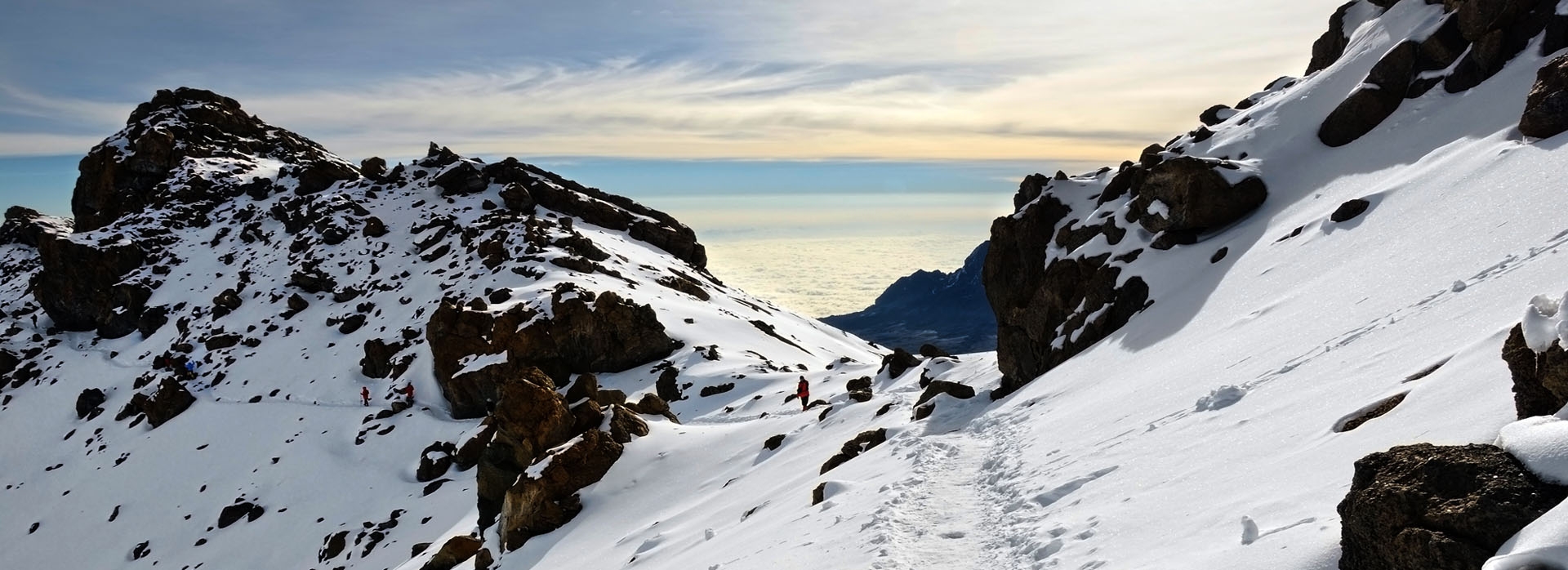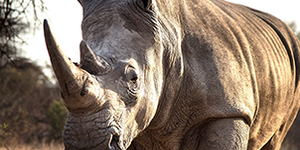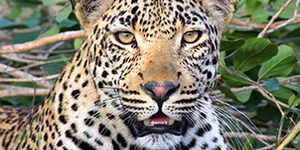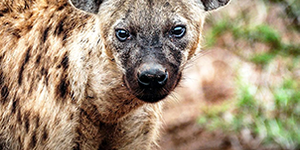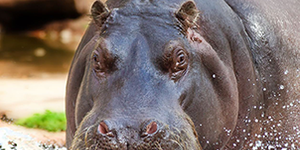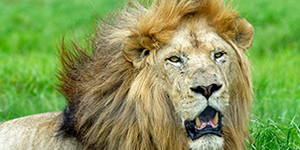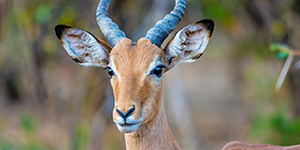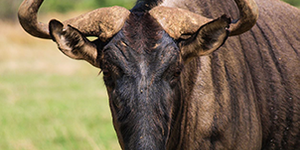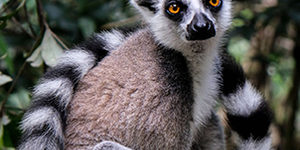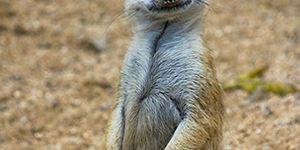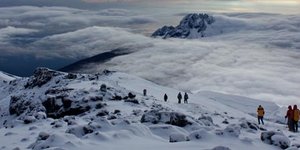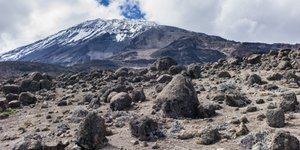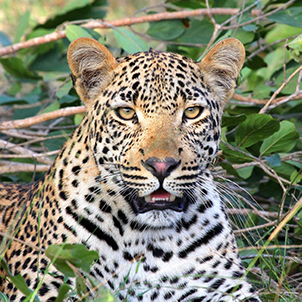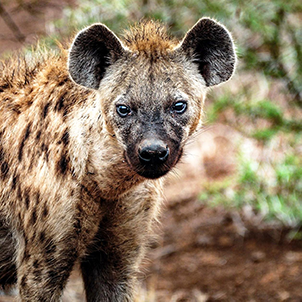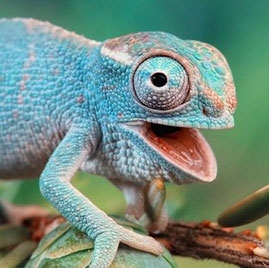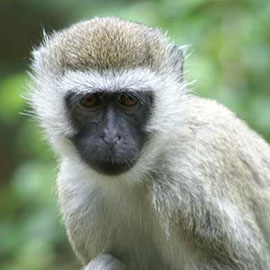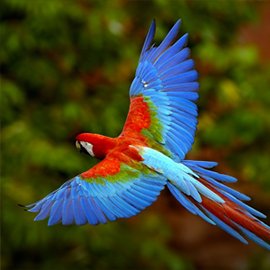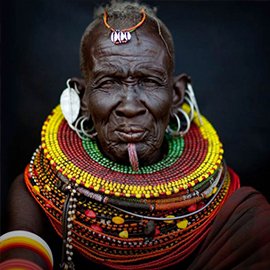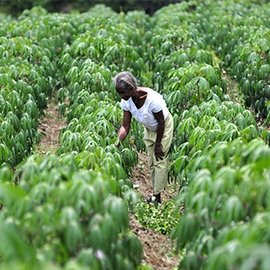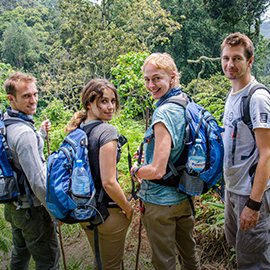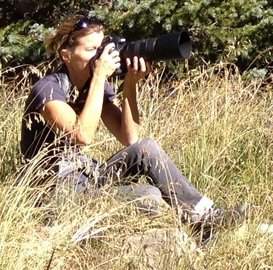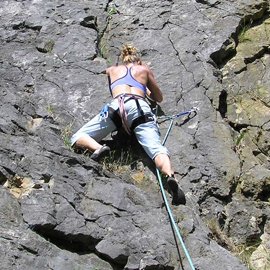Kilimanjaro National Park
Safari suitability: 2/10
Find your tourVisitors will see some big game and other African animals on their trek, but this park is really all about summiting the tallest mountain in Africa.
What YAS members think
Highlights
- Home to the tallest mountain in Africa.
- There is the ability to do smaller, day hikes and to see some of Tanzania’s wildlife.
- The park’s proximity to Arusha makes it easy for people to add a northern Tanzania safari on to their Kilimanjaro summit.
About Kilimanjaro National Park
In the northeastern part of Tanzania, and very close to the Kenyan border, lies the tallest mountain in Africa – Mount Kilimanjaro. At nearly 6000 meters—5895 m (19,340 ft)—it is the largest free-standing volcanic mass in not only all of Africa, but in all of the world. Kilimanjaro is comprised of several peaks, with Uhuru Peak being the highest. The park was established in 1973 and encompasses the entire mountain above the tree line. In 2005, the park boundary was extended to include the Kilimanjaro National Forest Reserve
The vegetation of the mountain varies dramatically as the elevation increases, and it is more pronounced that some other mountains as the base Mount Kilimanjaro or “Kili” starts at around 700 m (2296 ft) on the southern slopes. Climbers will start in a humid, rainforest zone and continue up into alpine desert and finally into the barren, glacial zone. The dramatic variation in climate means layers are a necessity for all those who wish to climb and summit Kilimanjaro. Most people who visit Kilimanjaro National park come to climb and not for a safari. It is, however, possible to see many animals in almost all of the zones, such as: black and white colobus monkeys, blue monkeys and olive baboons. Buffalo, elephants and elands also live here but they are seldom seen.
What are the climbing routes of Kilimanjaro?
It is generally agreed that Kilimanjaro has six official trekking routes: Lemosho, Machame, Marangu, Rongai, Shira and Umbwe. Marangu and Rongai are considered to be the easier routes, but also the less-scenic of routes, particularly Rongai. Marangu is nicknamed the ‘Coca-Cola Route’ due to the huts along the way where people can buy Coke and because it’s quicker and easier than most of the other routes. It also is not a circuitous route and climbers must use the same route for their descent. Rongai is the only northern approach to Kilimanjaro and, although it is one of the easier routes, its final summit is one of the most difficult. Of all the routes, Machame is considered the most scenic but steeper route, which also makes it one of the most popular and crowded routes. It has the highest success rate of the six routes. Shira and Lemosho routes also have good success rates and are scenic options with fewer visitors than Machame. Umbwe is a very direct route, which means it is a shorter option, but also offers much less time for acclimatization. It tends to be less popular than the other routes.
Climbers are advised to allot anywhere between five and nine days for summit and descent, depending on fitness levels and route selected. Many people also opt for an extra day for acclimatization, which can have a significant impact on success rate. It is recommended that climbers and trekkers thoroughly research their guide and outfitter, as the guide can make or break the trip. There are numerous companies offering guided treks up Mt. Kilimanjaro, and a bit of research prior to choosing an outfitter will pay off in the long run.
When is the best time to climb Kilimanjaro?
Kilimanjaro can be climbed year-round. The months which are considered to be optimum climbing months are January, February, and September. These months are high tourist season. The end of March through May is the heavy rains seasons, which means the mountain may be shrouded in heavy cloud. It does, however, mean the crowds are much thinner. The winter months of June through September are also recommended, but temperatures tend to be lower than in December through February.

The Kilimanjaro climb takes in the unique high-altitude plants and alpine meadows before finally arriving at the glacier-coated summit. We did the trip with burigi chato safaris and they really provided excellent services from the first day of the tour.
Sort by:

On climbing mountain Kilimanjaro with this company we was enjoy our adventures because We bonded as a group, helped each other along the way, and celebrated together when we reached the summit. The expert guides ensured we were all safe and well-prepared

Pack light but don’t forget essentials like binoculars, sunscreen, a hat, and layered clothing for varying temperatures. Trust your guide—they know how to make the most of every game drive!

Train in Advance – Build endurance with hikes and cardio workouts before your trek. Pack Smart – Bring quality gear, including layered clothing, waterproof gear, and comfortable boots. Stay Hydrated – Drink plenty of water to help with acclimatization. Take it Slow – Follow the “pole pole” (slowly, slowly) pace to avoid altitude sickness. Trust Your Guides – Listen to your guides; they know the mountain best! Enjoy the Journey – Take in the stunning views and cherish every moment!

1. Train Physically: Prepare with cardio and hiking to build strength and endurance. 2.Choose the Right Route: Select a route that suits your fitness and experience level. 3. Acclimatize Properly: Follow the itinerary for proper altitude acclimatization to avoid sickness. 4. Pack Smart: Bring essentials like good boots, warm clothing, and snacks. 5. Stay Hydrated: Drink plenty of water and eat the provided meals to maintain energy. 6. Trust Your Guides: Rely on Wild Horizon's experienced team for safety and support. 7. Enjoy the Journey: Appreciate the landscapes and the climb itself, not just the summit. 8. Relax After: Plan for some downtime after the climb to rest and enjoy the experience.

Train in advance – Kilimanjaro is a challenging trek, so prepare with cardio workouts, endurance hikes, and strength training. Pack wisely – Layered clothing, quality hiking boots, and a good sleeping bag are essential. Hydration is key – Drink plenty of water to help with altitude acclimatization. Go slow ("Pole Pole") – A steady pace increases your chances of reaching the summit successfully. Trust your guides – They have the experience to help you adapt and succeed on the mountain.

For best Mount kilimanjaro climbing is the best to choose origin ventures and safaris because they ensure your safety and you reach to the summit of Kilimanjaro or on the roof of Africa.

When planning a climb of Mount Kilimanjaro, particularly via the Machame route, it’s essential to consider several key factors to enhance your experience. First, ensure you are physically prepared for the trek by engaging in regular cardiovascular and strength training leading up to your climb. Second, choose a reputable tour company that provides experienced guides and quality support staff; their knowledge can significantly impact your safety and enjoyment. Third, pack appropriately for varying weather conditions, including layers for warmth and rain gear. Additionally, stay hydrated and maintain a balanced diet during the trek to keep your energy levels high. Finally, embrace the journey with an open mind and foster camaraderie within your group, as this will enrich your overall experience.

It’s worth it experiencing, especially the mountain climbing, with a perfect season, for those who don’t need the crowed its suits them. As the experience was phenomenal.

For an amazing view, it is not necessary to climb the summit of Kilimanjaro. All National parks have their own charme, so it is good to experience more than one.

This place is awesome and unique in Africa. Its rainforest is dense and abundant of evergreen, when you get to it high elevation you got spectacular views from the top to the ground. The glaciers, crater, caldera, caves, valleys, lava features, water which flows from melting glaciers and other attractions are amazing.
Driving to Kilimanjaro National Park
Due to its proximity to JRO, Kilimanjaro Internationnal Airport, the drive to Kili is around an hour to 90 minutes, depending on which route you'll be climbing.
Riverside Shuttle also runs between Nairobi, Arusha, Moshi, Kilimanjaro and JRO and is an option for budget travelers.
The following airlines travel to Kilimanjaro National Park

Scheduled domestic services in Tanzania. Air Tanzania Corporation (ATC) the Tanzanian flag-carrier, was established on 11 March, 1977, to operate the services suspended following the dissolution of East African Airways (EAA), which was owned jointly by Tanzania, Kenya and Uganda. Visit website
Also flies to:



As Salaam Air has grown to be a leading air carrier between the Tanzanian Islands. Our experienced team understands that customer satisfaction is important to the creation of a successful flight operation. Thus, we go above and beyond to satisfy our clients. The airline plies eight routes to promote tourism within and outside the country. We have two fuel-efficient aircraft Cessna 208B Grand Caravan and Embraer EMB 120 Brasilia, which are good for the environment and the safety of our clients.We would like to help you discover more about our Islands here on our website and at every step of your journey Visit website
Also flies to:


Coastal Aviation is an airline operating out of Dar es Salaam - charter flights. Coastal Aviation flying to some 100 strips located in some of the most isolated pockets of the East African Region. The scheduled Coastal network also connects visitors to Kenya, Uganda and Rwanda with the world-famous Serengeti, links the emerging tourism destinations of Mozambique with the Southern Tanzania parks of Selous and Ruaha, and unites the tropical island paradises of Pemba, Zanzibar, Mafia and Fanjove Private Iaslandwith the National Parks and towns of the mainland. Our state of the art fleet is composed of 20 aircraft and has been expertly-adapted to the African safari environment, without compromise to safety and comfort. Visit website
Also flies to:




Flightlink is a scheduled airline with Air Operator Certificate (AOC) and Air Service License (ASL) granted by Tanzania Civil Aviation Authority & Kenya Civil Aviation Authority to conduct Private & Scheduled Flight under Public Transport category within the region. All the aircraft in our fleet are chosen for their excellent safety records and their ability to perform in even in the most hostile conditions, so landing be it in the bush or on tarmac is not at all taxing. Visit website
Also flies to:


At flydubai were committed to making air travel more affordable. Dubai based flydubai operates routes to more than 95 destinations across the Middle East, Subcontinent, Africa, Russia and Eastern Europe. flydubai is dedicated to reducing the cost of air travel in the region. We keep things simple, reducing our operating costs and passing the savings on to you. Visit website
Also flies to:



Precision Air is a publicly-listed Tanzanian airline and a leader in providing scheduled flight services to over 10 destinations within and outside Tanzania from its main hub Dar es Salaam. The company operates on the principle that quick, comfortable and reliable service is the best way to serve its customers. Through its customer-focused approach, many have become part of the Precision Air family. Precision Air started with its headquarters in Arusha - the midpoint between the Cape and Cairo, which is the entry point to many of Tanzania's world-renowned landmarks and national parks. The headquarters of Precision Air are now Dar es Salaam, the business complex of the country, which is home to a vast size of traffic travelling within and outside Tanzania. Visit website
Also flies to:




Premium Charter Service is an air charter broker based in Tanzania. We offer our valued clients a truly exclusive flying experience, one that combines luxury with the convenience of flying privately. Our network of domestic and international operators adheres to strict standards of quality. We deliver a superior experience to our clients with a high level of professionalism. Visit website
Also flies to:


Regional air is a recognized leader in the aviation industry in Tanzania, the airline began in 1997 with one pilot and one aircraft. They are affiliated to the long-established Nairobi-based domestic airline, Airkenya. We are based in the northern Tanzanian town of Arusha. Arusha is the starting point of safaris into Northern Tanzania, as the airline also offers charters to these various parks and game reserves. Visit website
Also flies to:


Premier safari airline and charter. Safarilink is Kenya's premier safari airline with a network of connecting domestic scheduled services to all the best safari destinations within Kenya and across the border into northern Tanzania. From it's base at Wilson Airport, Nairobi SafariLink provides daily scheduled flights to Masai Mara, Amboseli, Tsavo West, Naivasha, Nanyuki, Lewa Downs, Samburu, Lamu, Kilimanjaro, Loisaba, Migori and Diani Beach. Additionally it can also provide private charter flights if a client's particular requirement as regards destination or timing cannot be met by the scheduled services. Visit website
Also flies to:



TANZANAIR was formed in 1969 and pioneered aviation throughout Tanzania. Today it continues to live up to its slogan as theComplete Aviation Company. It was founded by Dinos J Samaras who managed the Company until he passed away in April 2010. It is now headed by his son John Samaras who was his deputy since 1983. With 45 years experience, TANZANAIR offers tailor-made air travel to suit the needs of its customers. With a modern fleet of twin and single-engine Cessna and Beechcraft turbine aircraft, TANZANAIRs well-established reputation leads the way in air charter services throughout the region. TANZANAIR operates out of its own purpose-built Passenger Terminal located between Terminal I and II at Julius Nyerere International Airport in Dar es Salaam. The passenger lounge is adjacent to the two hangars. It is housed within a secure wall enclosed compound with ample parking facilities. Visit website
Also flies to:


Flown by an international team of pilots, Zantas Air has one of the youngest fleets of Cessna Grand Caravans in Tanzania. These are maintained to the highest safety standards and comply with the ICAO, CESSNA, and TCAA directives. We have an exclusive lounge at Arusha airport. Guests can relax in our comfortable lounge while they wait for their flight. Our operations are designed to suit our client's needs with a customized itinerary based on their schedule. Zantas Air works with its sister company, Mbali Mbali Lodges and Camps, to offer shared charter flights. We fly passengers from Northern Tanzania to Western Tanzania twice a week on Monday and Thursdays. Visit website
Also flies to:

Kilimanjaro map
Nearby parks and game reserves
Related articles
Latest photos


